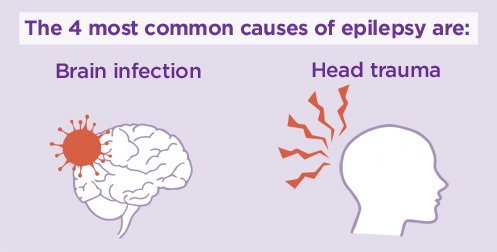What causes seizures during early or pre-natal babies? The most common cause of epilepsy seizures in newborns is infections and brain haemorrhage, though the exact cause is not well understood for all newborn babies.
Seizures in infants may start at birth or soon after, and it depends on what type of seizure they are. Some seizures are brief and easily controlled by the parents, and can be resolved within the first couple of minutes of the seizure. However, seizures lasting longer than a few minutes usually require urgent medical attention. The symptoms of a seizure are mild and include shaking, nausea, and sleepiness. A seizure usually lasts from thirty seconds to a few minutes and is followed by intense, convulsing seizures.
Seizures are usually diagnosed by monitoring a child's vital signs and observing the frequency and duration of their attacks. For very rare seizures, an electrocardiogram is done. A series of tests are done to identify the root cause of a seizure. Once this is established, the doctor may prescribe an appropriate medication to relieve symptoms. If you suspect your child may have epilepsy, see your doctor immediately for a diagnosis.
One of the most common causes of neonatal epileptic seizures is associated with brain stem defects. This leads to seizures that do not stop even if the affected area of the brain is treated with medication. In most cases, the seizures will not return after the child is weaned from the medication. But in rare cases, the child may have recurring seizures.
Seizures can also be caused by brain defects. Severe head injury or a brain tumor can cause seizures, as well as inflammation of the brain, infection, and lack of oxygen. An underlying condition called a brain abscess also causes seizures and coma. In these cases, doctors cannot make a clear diagnosis because they cannot clearly distinguish between conditions. therefore, treatment includes the use of drugs to control symptoms.
Several other conditions can cause seizures and brain damage. People with multiple sclerosis and other neurological problems like Parkinson's are more prone to seizures and brain damage.
People with traumatic brain injury and traumatic brain injury are also at risk

Pregnant women can also suffer from seizures during pregnancy, although this is very rare. This condition is commonly referred to as "migraine" and occurs in two out of ten cases. Migraine is a condition in which a woman experiences sudden, disabling headache accompanied by severe pain. Regular headaches of a pregnant woman can get worse and lead to a complete cessation of daily activities.
Seizure problems can affect a woman during and after pregnancy. But fortunately, women can still control the seizures by applying heat or by using medications prescribed by their doctor. Severe seizures can even result in irreversible brain damage, and sometimes even death.
Seizures can also be triggered by stress and anxiety. If your child is suffering from a serious problem such as depression or anxiety, you should know what triggers the problem in order to help manage the problem. It is important to find out whether the behavior you want to change is actually a symptom of the underlying problem. If you feel that something is wrong, but it is not a symptom of the problem, then you should try and help your child through this difficult time.
Another important sign to look for is when your baby is refusing to sleep for long periods of time. If your baby is experiencing seizures for the second time in a week, he or she might need urgent medical attention. A sudden seizure is often not dangerous, but in some cases it might lead to coma or death if left untreated.
It is not only epilepsy that a child suffers from seizures, but he or she can also have other types of problems related to seizures. Epilepsy is one of them, where the brain fails to control its activities. It is a neurological disorder and is more common in children than adults. When a child experiences seizures, he or she is unable to control his or her body movements.
Seek medical attention for your child right away. The sooner it is treated, the better the chances of the child getting better. Although the condition can be potentially fatal, there are several treatments available today to help control the seizures and keep your child healthy in general. If you suspect that your child has epilepsy, it is best to consult a doctor right away to get an accurate diagnosis.